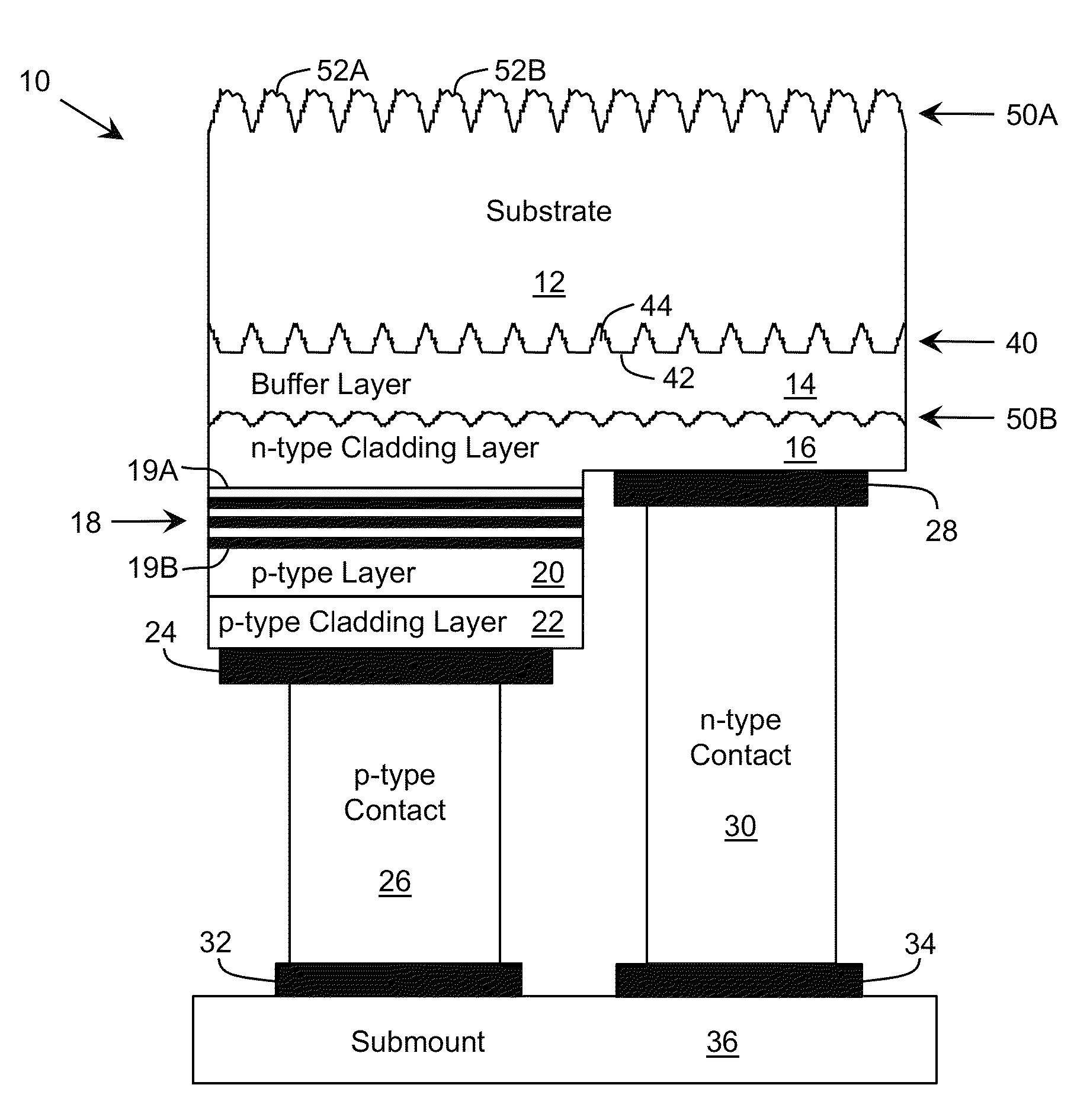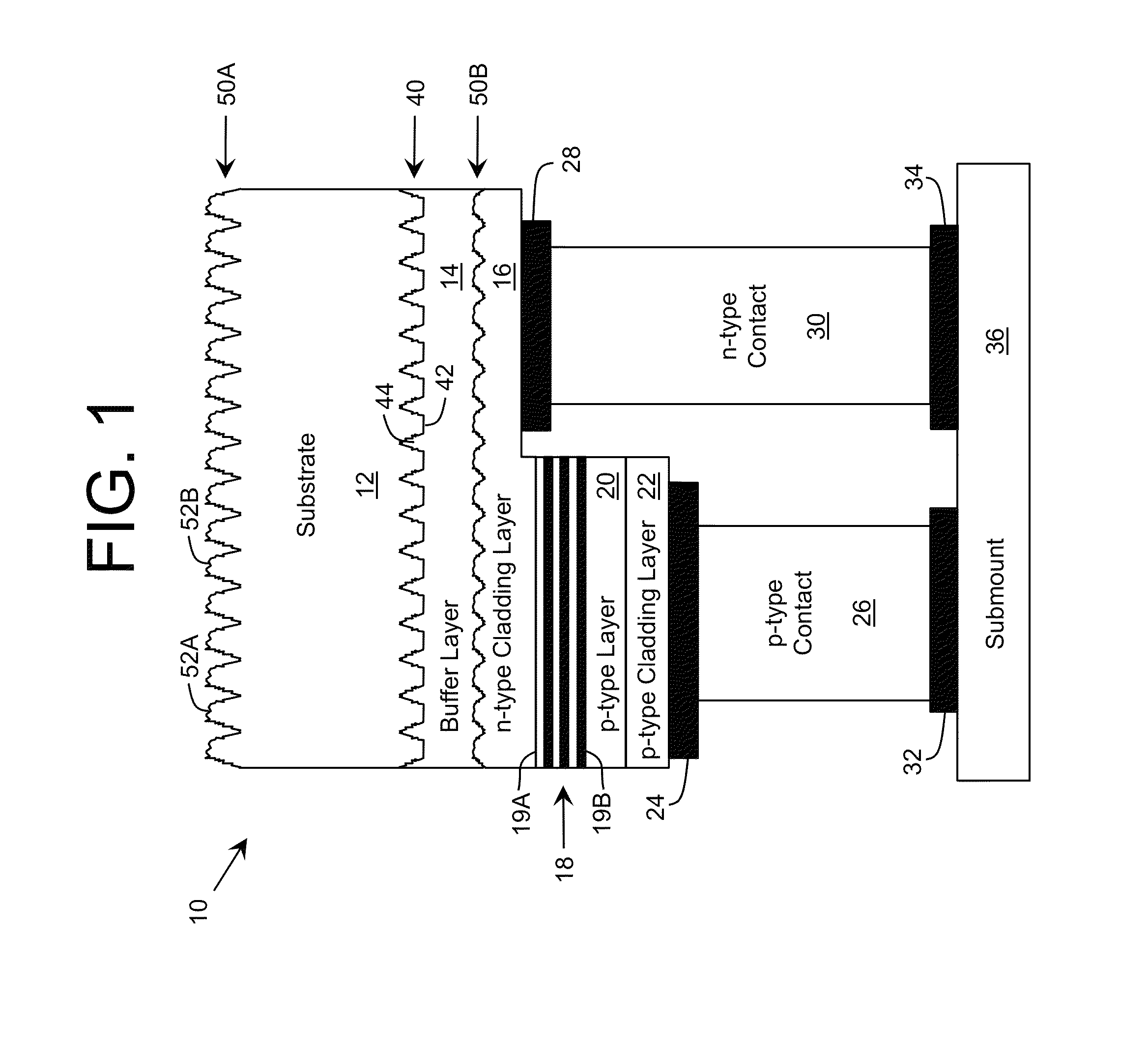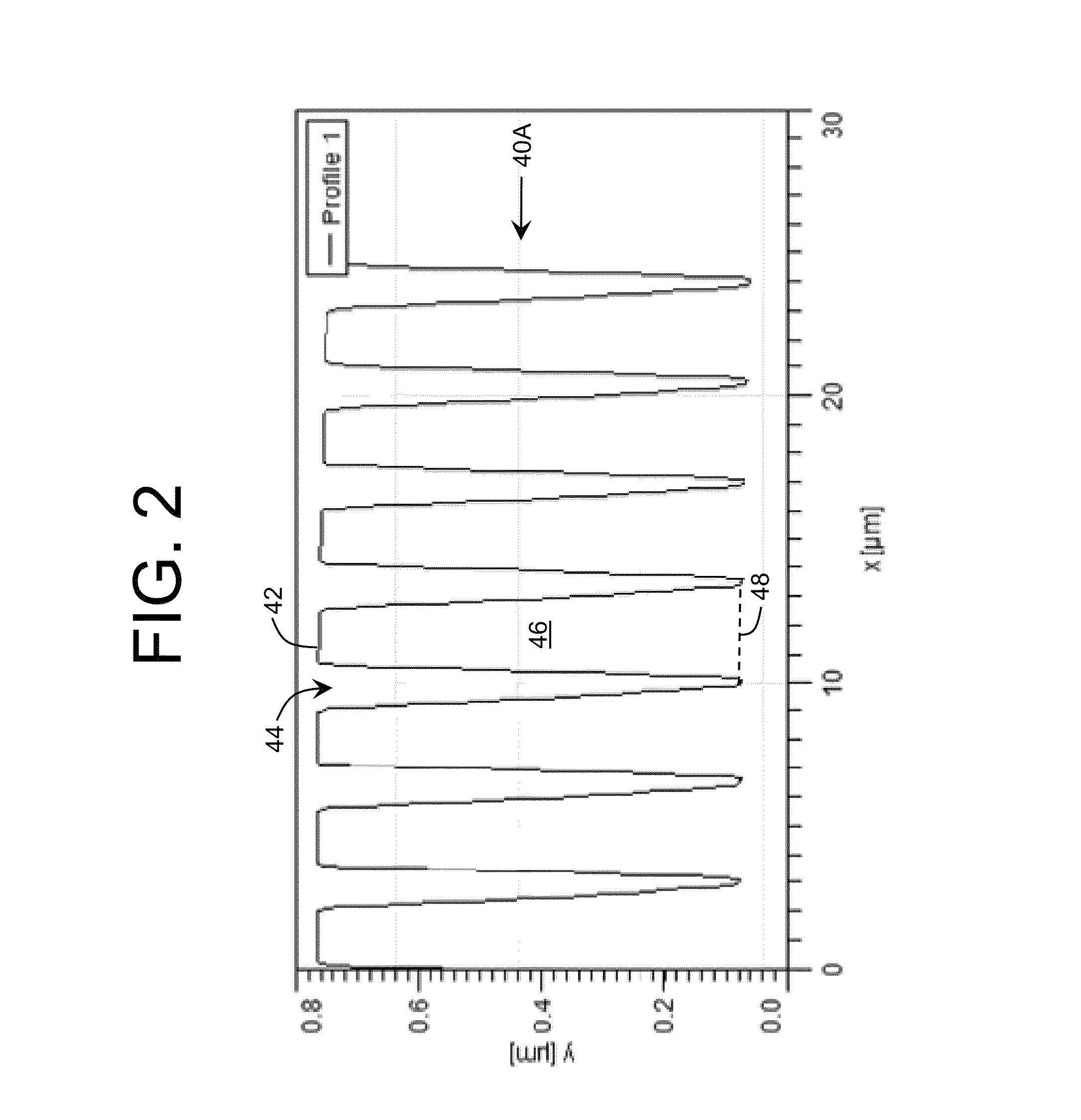Patterned substrate design for layer growth
a technology of patterned substrates and substrates, applied in the direction of basic electric elements, instruments, energy-based wastewater treatment, etc., can solve the problems of affecting the optical properties of materials, and affecting so as to improve the growth rate of semiconductor layers
- Summary
- Abstract
- Description
- Claims
- Application Information
AI Technical Summary
Benefits of technology
Problems solved by technology
Method used
Image
Examples
second embodiment
[0041]FIGS. 5 and 6 show a side view and a two dimensional top view, respectively, of an illustrative patterned surface 40B of a substrate 12 (FIG. 1) according to a In this case, the patterned surface 40B includes a top surface 42 into which a plurality of openings 44 are formed. The openings 44 can be spaced from one another by a distance less than approximately twice a diameter of a top opening 45. In an embodiment, each opening 44 can have a top opening 45 of a diameter of approximately 2.0 μm and a bottom surface 47 having a diameter of approximately 1.5 μm. Furthermore, the openings 44 can be spaced from one another by approximately 3.5 μm center to center. As illustrated in FIG. 6, the openings can have substantially circular cross sections and be formed in a hexagonal pattern. However, it is understood that the openings 44 can comprise any combination of one or more of various types / shapes of cross-sectional patterns and form any type of pattern.
[0042]The patterned surfaces...
third embodiment
[0047]In an embodiment, a surface of a substrate 12 can include multiple patterns. For example, FIG. 10 shows a two dimensional top view of an illustrative patterned surface of a substrate 12 according to a In this case, the substrate 12 includes a plurality of stripes, such as stripes 70A and 70B, of an isolating material. In an embodiment, the isolating material comprises silicon dioxide. As illustrated, the stripes 70A, 70B can form a plurality of regions, such as regions 72A and 72B, each of which is isolated from another region by the stripes 70A, 70B. Each region 72A, 72B can comprise a patterned surface configured as described herein. Furthermore, the plurality of regions 72A, 72B can include patterned surfaces formed using a different solution and / or having different attributes. In this manner, each region 72A, 72B can comprise a configuration, which is suitable for stress reduction through lateral epitaxial overgrowth, selective area growth, selective polycrystalline growt...
PUM
| Property | Measurement | Unit |
|---|---|---|
| size | aaaaa | aaaaa |
| size | aaaaa | aaaaa |
| root mean square roughness | aaaaa | aaaaa |
Abstract
Description
Claims
Application Information
 Login to View More
Login to View More - R&D
- Intellectual Property
- Life Sciences
- Materials
- Tech Scout
- Unparalleled Data Quality
- Higher Quality Content
- 60% Fewer Hallucinations
Browse by: Latest US Patents, China's latest patents, Technical Efficacy Thesaurus, Application Domain, Technology Topic, Popular Technical Reports.
© 2025 PatSnap. All rights reserved.Legal|Privacy policy|Modern Slavery Act Transparency Statement|Sitemap|About US| Contact US: help@patsnap.com



